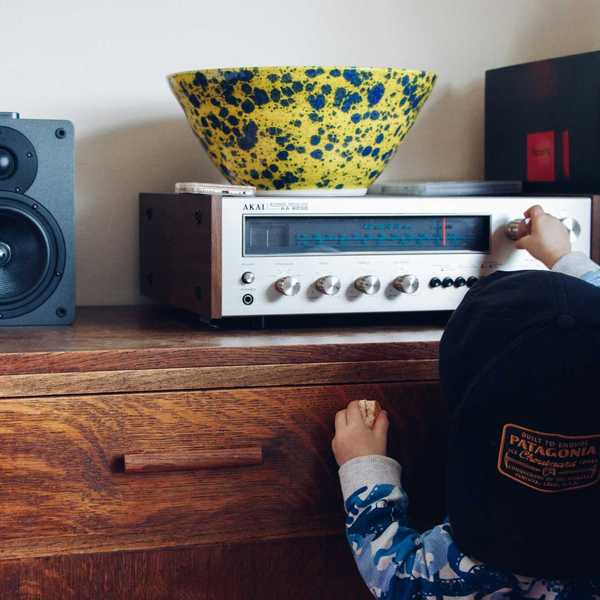Obituaries, March 9, 2023
Rawle James, a Toronto dance music industry veteran, died of a heart attack on March 1 at age 68.

By Kerry Doole
Rawle James, a Toronto dance music industry veteran, died of a heart attack on March 1 at age 68.
James' career included roles in A&R, marketing, radio promotion, management, publicity, retail buying, record store ownership, DJing, record production and mixing, and album compilations (including some of the Much Music Dance Mix series) at such companies and labels as Koch, TJSB, Disco Sound, J's Records, Aires Entertainment, and Quality.
His former colleagues were quick to offer tributes on social media. Here are some of those:
Dominique Zgarka: "RIP Rawle James, my dear friend and partner. Rawle was a long-term employee of mine and a partner in our label TJSB - Two Jews, a Scot and a Black man - alongside Robert Kerr, Cyril Kaye, and myself. Our label TJSB only has the two Jews left."
Vince Degiorgio: "It is with incredible sadness that I am writing this remembrance of my dear friend Rawle James who passed away suddenly. I am honestly struggling to write this because there is so much to say about someone who meant so much to so many, especially me, a loudmouthed know it all from Brampton who didn't know the city until I met him. Knowing him made me a far better person.
"Rawle's friendship was everlasting. Time passed was time saved. We never missed a beat. Working with him, as well as Peter Frost and Freddie Goshine at Disco Sound of Canada in the early part of my career can only be described as a movie. There is an infamous photo of all of us online with the amazing Amanda Lear, and I am laughing because Rawle is mischievously grabbing my ass!
"Rawle was beloved by customers and incredibly human; he was anchored in the inner circle of the disco movement but was too kind and modest to ever need to rise above it. He did it naturally, just because he was Rawle. We were in the mecca of the dancefloor in our city; many were drawn because of the personalities that worked there and came there. It was the best place in the world to be with your closest friends, no matter what your culture, class, gender or orientation. Record store owner, Record label owner, DJ, promotion company owner, feeder of the homeless, New York Islander hockey team fan, and so much more. I am sure in heaven, they will love you as much all of your friends did."
Barry Harris (Kon Kan): " I remember Rawle James firstly from his own import Record store on Carlton St. in Toronto, J's Records, round '83 or '84 I think. It was there (his 2nd store) probably in 1986 where he co-ordinated my doing a DJ mix (edit-wise) on Vince Degiorgio's Power Records. I picked up the vinyl pressing from Rawle's store and clearly remember how thrilled and elated I was to have my name on my very first actual record!
"Rawle was a good salesman. Always had a good heart. He never talked club politics, never gossiped. Later in '88 when the first record I actually made, I Beg Your Pardon, started to blow up in Houston, Kon Kan was offered to perform there. At first, I was taken aback as it was never my intention that IBYP would ever be performed live. I had to think quickly as it was a $ offer I couldn't refuse. I had to "get it together' quickly so along with Kim Esty I asked Rawle if he would be our tour manager, at least for now. He did help us through the process, looked after us and came with us to Houston. That was the first gig we ever did & it was with New Kids On The Block opening for us as we had the bigger record in Houston at the time (true story - go figure).
"Later on throughout the years Rawle was always a part of the Toronto Dj/Club music scene in one way or another, and of course, we'd run into one another often. I literally gasped the other day when I saw the news of his passing. R.I.P. Rawle, you clearly touched a lot of hearts over the years."
Gavin Bradley: "This is a difficult one to hear about. I first knew Rawle as a record guy with a golden ear, intuitively understanding my palate, and pulling perfect records for me to check out at whatever DJ shop he currently worked at. It always felt like a gift, a sharing of music, as opposed to a salesperson selling.
"Then I knew him as a passionate and above-board artist manager, seeking me out to produce and remix whenever he came across a musical match. When I launched a solo career, he was into it—he showed up and continued those efforts to connect me wherever possible. He was just pure in his love of music and interested in facilitating in any way possible for other musicians. He didn't give a damn what community you were from—he was about shared joy and positivity. Rest easy Rawle. You were, and will always be...golden."
Kenneth Paul White: "Was very saddened to hear that an awesome human, and a colleague from my Koch days (under Dominique Zgarka) back in the late nineties, Rawle James, just passed away. I remember so fondly working beside him in a marketing capacity at the time, and his passion for music and that incredible laugh of his made such an impression on this young guy - a gem of a man, my condolences to his friends and family."
Sources: Facebook, Linkedin, Dominique Zgarka
Dane Lanken, a Canadian musician, journalist and author, died on March 3 at age 77.
Lanken is the husband of famed folk singer-songwriter Anna McGarrigle (they married in 1977), and he appeared as a vocalist and musician on many albums by Kate and Anna McGarrigle. McGarrigle and Lanken have two children, Lily Lanken and Sylvan Lanken.
Lanken was a film critic for the Montreal Gazette from 1967 to 1977 and was later a freelance journalist who wrote regularly for Canadian Geographic and Glengarry Life. He is the author of Montreal Movie Palaces: Great Theatres of the Golden Era 1884 - 1938, and in 2007 he wrote Kate and Anna McGarrigle: Songs and Stories, the career biography of the sibling folksingers.
Sources: Wikipedia, Facebook, Glengarry News
International
David Lindley, a renowned session guitarist, recording artist, and master of a wide range of stringed instruments, died on March 3 at age 78.
Lindley first made a mark as co-founder of Californian psychedelic rock band Kaleidoscope, then found renown as an in-demand session musician. Rolling Stone wrote that "Lindley was deeply ingrained in the L.A. scene, and his contributions on guitar, fiddle, slide guitar, mandolin, and a variety of other stringed instruments became integral parts of those records. Lindley helped bring out added textures and shadings in songs — as much a part of his legacy as his voluminous credits, which also include work with Ry Cooder, John Prine, Linda Ronstadt, and David Crosby & Graham Nash." A highlight of his extensive session career was his work on a large number of Jackson Browne albums.
He also put out albums under his own name, scoring a moderate hit with his band El Rayo-X via a cover of K.C. Douglas’ Mercury Blues. He also explored world music, made records with guitarist Henry Kaiser and musicians from Madagascar, and became a regular on the roots music club and festival circuit.
Some prominent Canadian musicians joined in the chorus of tributes to Lindley. Guitarist/producer Steve Dawson posted on Facebook that "I first heard David Lindley on that crazy Night Music show back in the day. I was playing slide guitar by then, but barely, and also dabbling in lap steel. I always watched that show, which featured odd pairings of musicians like Miles Davis and John Lee Hooker, along with a killer house band. And then Lindley came on, totally solo with his Weissenborn and played Bon Temps Roule and that kinda did it for me.
"I’ve been hooked on the Weissenborn ever since, and his playing led the way for my weird explorations over the last 20 years. I also found it inspiring how he just walked away from a successful studio career to go and play weird folk music at little clubs around the world. That said, his studio work is superb. I got to see him many times, opened for him a few times as well, and had a few hilarious hangs. It was a real thrill to have him on my podcast a couple of years ago to talk about his long career. Thanks for the music, Mr. Dave!" Podcast link here.
Sources: Claremont Courier, LA Times, Rolling Stone
Glenn Michael Lockett (aka SPOT), a noted punk record producer for such bands as Hüsker Dü and Black Flag, died on March 3 at age 72.
Consequence reported that "The influential engineer had been battling fibrosis before he suffered a stroke several months earlier and ultimately passed away at a healthcare facility in Sheboygan, Wisconsin."
Former SST Records co-owner Joe Carducci called Lockett “an architect of the natural approach to recording a band in the punk era" and praised him for "taking the primacy of live jazz playing into recording bands against prevailing attempts to soften or industrialize a back-to-basics arts movement in sound.”
Lockett started out in the budding LA punk scene as a journalist, musician, and photographer. After sparking up a friendship with Black Flag’s Greg Ginn, “SPOT” joined the nascent SST Records by producing the band’s 1980 EP, Jealous Again. Over six years, Lockett contributed to the indie punk label’s ’80s heyday with genre-defining releases including Hüsker Dü’s Zen Arcade, Black Flag’s Damaged, Descendents’ Milo Goes To College, Meat Puppets’ self-titled debut and The Misfits’ Die Die My Darling.
He also developed and honed new acts, handling debut albums for Minutemen, Meat Puppets, Saint Vitus, and Saccharine Trust.
Lockett left SST in 1986 and spent subsequent years writing and photographing. He published the photo book Sounds of Two Eyes Opening in 2014, and released a novel, titled Decline and Fall of Alternative Civilization, in 2019. He also unveiled two full-length music projects at the end of 2022 via Bandcamp.
Hüsker Dü guitarist Bob Mould thanked Lockett for being “a wonderful soul who loved making music, documenting the scene, and unconditionally supporting all the projects that bear his name,” and Steve Albini praised Lockett as “the archetype scene recording guy, the guy we all emulated and whose role we tried to play.”
Source: Consequence
Steve Mackey, the bassist in UK rock band Pulp, has died, at age 56, after a lengthy hospital stay.
Mackey also made a mark as a producer, photographer and filmmaker. He joined Pulp in 1989, first contributing to their third album Separations. He went on to play on all their subsequent studio albums, including the likes of Different Class and His ’n’ Hers, regarded as high points in the mid-90s Britpop scene.
Pulp went on hiatus in 2002 but reformed for live performances across the world in 2011 and 2012.
In October 2022, Mackey announced that he wouldn’t be joining Pulp for their latest set of reunion concerts in the summer of 2023. “I’m exceptionally proud of the body of work we’ve created together ... however I’ve decided to continue the work I’m engaged in – music, film-making and photography projects.” He wished the band well and thanked the group’s “amazing fanbase”.
Pulp's first album with Mackey, Separations, paved a move to a major label, Island Records. His’n’Hers reached the UK Top 10 in 1994 and its successor, Different Class, powered by the anthemic single Common People, reached No 1, as did its follow-up This Is Hardcore. A final album, We Love Life, was released in 2001.
As well as joining Pulp’s reunion gigs, Mackey worked with other musicians as a producer, co-writer and mixer. He co-wrote and produced songs on Florence + the Machine’s debut album Lungs; co-produced the breakthrough MIA single Galang; worked on early recordings by the Horrors; and continued to collaborate with Jarvis Cocker on the latter’s solo recordings. He later partnered with Daft Punk producer Thomas Bangalter to produce tracks on Arcade Fire’s album Everything Now and worked with Spiritualized on the 2018 album And Nothing Hurt.
In later years – sometimes in collaboration with his wife’s magazine Love – Mackey took on high-profile fashion photography and film-making projects for big-name clients.
Read more in The Guardian here.
Gary Rossington, the last remaining original member of Southern rock greats Lynyrd Skynyrd, died on March 5 at age 71. No cause of death was given.
The songwriter/guitarist Lynyrd Skynyrd helped write the classic answer song Sweet Home Alabama and played slide guitar on the rock anthem, Free Bird.
“It is with our deepest sympathy and sadness that we have to advise that we lost our brother, friend, family member, songwriter and guitarist, Gary Rossington, today,” the band wrote on Facebook. “Gary is now with his Skynyrd brothers and family in heaven and playing it pretty like he always does.”
Rossington survived a car accident in 1976 and a year later, he survived the plane crash that killed singer Ronnie Van Zant, guitarist Steve Gaines, and backing vocalist Cassie Gaines. AP reports that "in later years, Rossington underwent quintuple bypass surgery in 2003, suffered a heart attack in 2015, and had numerous subsequent heart surgeries, most recently leaving Lynyrd Skynyrd in July 2021 to recover from another procedure. At recent shows, Rossington would perform portions of the concert and sometimes sat out full gigs."
Rock & Roll Hall of Famers Lynyrd Skynyrd released their debut album Pronounced `Lh-`nerd `Skin-’nerd in 1973. It was the closing track, the nearly 10-minute Free Bird, that became the group’s calling card, due in no small part to Rossington’s evocative slide playing on his Gibson SG.
He formed a new group, The Rossington Collins Band, with several former bandmates in the 1980s before Lynyrd Skynyrd reformed in 1987 to commemorate the 10th anniversary of the crash, with Van Zant's younger brother Johnny on lead vocals, along with returning members Rossington, King, Leon Wilkeson, Artimus Pyle and Billy Powell. The band’s lineup has continued to change in the decades since, with Rossington remaining as one of the sole founders.
Sources: AP, Ultimate Classic Rock, BBC
Wayne Shorter, an American saxophonist and a master composer of jazz, died on March 2, at age 89. No cause has been reported.
Reuters noted that "Shorter wrote some of jazz’s most acclaimed compositions and his often plaintive playing changed the sound of jazz in the 1960s before he explored rock-fusion with Weather Report."
Shorter made his name playing the tenor sax with drummer Art Blakey’s Jazz Messengers in the late 1950s and joined Miles Davis’ influential 1960s quintet alongside pianist Herbie Hancock, bass player Ron Carter and drummer Tony Williams.
He wrote some of the group’s most famous songs including E.S.P. and Nefertiti. Davis hailed him as his band’s “idea person, the conceptualizer of a whole lot of the musical ideas we did” who also “understood that freedom in music was the ability to know the rules in order to bend them.”
His close friend Herbie Hancock also hailed Shorter’s songwriting. “The master writer to me, in that group, was Wayne Shorter,” the keyboardist said. “Wayne was one of the few people who brought music to Miles that didn’t get changed.”
Shorter led his own band to produce a string of albums in the 1960s including Juju, Speak No Evil, and Adam’s Apple which featured one of jazz’s greatest standards Footprints.
He co-founded jazz fusion band Weather Report in 1969 as he began to focus his playing on the soprano sax, and the band recorded one of the best-selling jazz records of all time, Heavy Weather, in 1977.
Other hit records included Native Dance featuring Brazilian singer Milton Nascimento which mixed jazz, rock and funk with Brazilian rhythms. Shorter also collaborated extensively with Joni Mitchell during her recording career, appearing on 10 of her albums, and collaborated with rock musicians such as Carlos Santana, Don Henley, Rickie Lee Jones, and Steely Dan.
In 2000, Shorter formed his first permanent acoustic group with pianist Danilo Perez, bassist John Patitucci, and drummer Brian Blade, which led to four albums of live recordings. Shorter co-wrote an opera Iphigenia with singer and bass player Esperanza Spalding that premiered in 2021.
He won 12 Grammy awards including one as recently as last month and is the recipient of their lifetime achievement award.
Shorter's peers were quick to pay tribute to a master. Wynton Marsalis posted that "An important cog in the ever-turning wheel of universal humanism has passed through leaving all he touched better than it was before. He was and will always be: purveyor of pentatonic perfection; master of blues-inflected melodies; hero of vertical and horizontal harmonic implications, a giant of saxophone regardless of the register; improviser extraordinaire in any and all musical environments; mercurial wit and biting humorist with uncommon humility and depth of understanding, seer, reader, and interpreter of ancient and modern myth…..jazz messenger. Rest In Peace."
Herbie Hancock: "Wayne Shorter, my best friend, left us with courage in his heart, love and compassion for all, and a seeking spirit for the eternal future. He was ready for his rebirth. As it is with every human being, he is irreplaceable and was able to reach the pinnacle of excellence as a saxophonist, composer, orchestrator, and recently, composer of the masterful opera “…Iphigenia “ I miss being around him and his special Wayne-isms, but I carry his spirit within my heart always."
Some notable Canadian musicians also paid homage to Shorter on social media:
John Cody: "An unparalleled loss, one of the true artists and geniuses of our time on this planet. Whether his own compositions for others and himself, his playing in and of itself, the many groups he was part of, or even other artists he recorded with, there is no singularly more of an influence over the last 70 years that lived for so long.
Wayne has made an imprint on my own music as well as my personal musical landscape indelible to the point where there will never be a match for his style, phrasing, modal thirst and hunger."
Michael Occhipinti: "Sorry to see another jazz giant go. Thank you Wayne Shorter. Weather Report's albums left a big impression on me when I was 13-14, and later I discovered all the great music he wrote before that, his impact on Miles Davis' music, and his classic albums as a bandleader.
As with most of my favourite artists, Wayne lived for the next project. He was never interested in a performing career, just playing his remarkable songbook, though he easily could've done that, and his ambition as a writer and experimentation as a musician grew as he aged. May we all be so fearless and creatively restless over many decades. Fly on Mr. Shorter."
Bob Wiseman: "There is an exquisite interview with Wayne Shorter somewhere on the tubes of You. He tells the story of meeting Lester Young in Toronto at the Towne Tavern. A lot of detail and magic and so was Wayne Shorter’s tone. I know his cred for the Miles Davis records is often the first honour cited about him, but for me, it’s the 70s Weather Report output, forever in my bloodstream."
Darcy James Argue: "Wayne Shorter was a primal force and it’s impossible to accept that he’s no longer with us. Truly, there isn’t a jazz composer today who does not owe an absolutely immeasurable debt to Wayne Shorter. Whether you assimilated his harmonic language, or consciously rejected it, or tried to thread a path somewhere in between, his influence is as unavoidable as the elements."
















